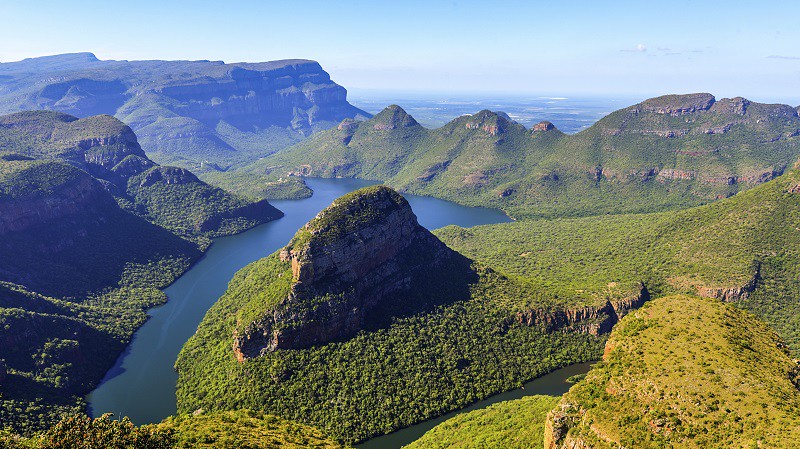Dr Lee Bryant, a biogeochemist from the Department of Architecture and Civil Engineering, is working with Professor Gideon Wolfaardt, a microbiologist and Director of the Stellenbosch University Water Institute (SUWI). They are working together to better understand a common threat affecting water security worldwide.
Blockages in local water supply
The Limpopo province is an agriculturally rich area in northern South Africa responsible for growing and exporting large amounts of food produce. Farms in the region are supplied with water from the Lower Blyde River irrigation system, which stems from the Blyderivierpoort reservoir. The piping network is vital for food production yet is vulnerable to blockages that reduce its flow and supply. The cause of the blockages is due to the amount of manganese (Mn) in the water, a problem that affects water plants on a global scale.
The geology of the region causes high levels of manganese in the reservoir. Biofilms in the water draw on the abundant source of manganese to respire and grow. This material forms on surfaces and reduces pipe diameter by approximately 25%. The impact on water supplies in the area threatens both food production and drinking water quality.
Gaining insight into a global water issue
The research collaboration between Bath and Stellenbosch will explore the conditions that cause manganese biofilms to build up. The findings will add weight to future decisions on how to manage blockages more efficiently, both economically and environmentally.
The project will focus on two stages: fieldwork at the Blyderivierpoort reservoir and experimental work in laboratories at both universities. Professor Wolfaardt and Dr Bryant will lead a research team to collect water and sediment samples from the reservoir starting in May 2016. These will be collected regularly to see how seasonal changes impact the accumulation of manganese. Dr Bryant visited Professor Wolfaardt at Stellenbosch last month to develop biofilm experiments in support of the fieldwork this summer.
Findings from the project will lead to a better understanding of the characteristics of manganese biofilms. The results will be used to influence processes that ensure a more stabilised water flow and supply in the pipe network at Blyderivierpoort reservoir. They will also have a wider impact, informing approaches to manganese problems in water management and treatment worldwide.
The research is funded by the University of Bath and Stellenbosch University. Dr Bryant received two University of Bath international mobility grants worth £20,000 to develop the project in collaboration with partner institute, Stellenbosch University.
